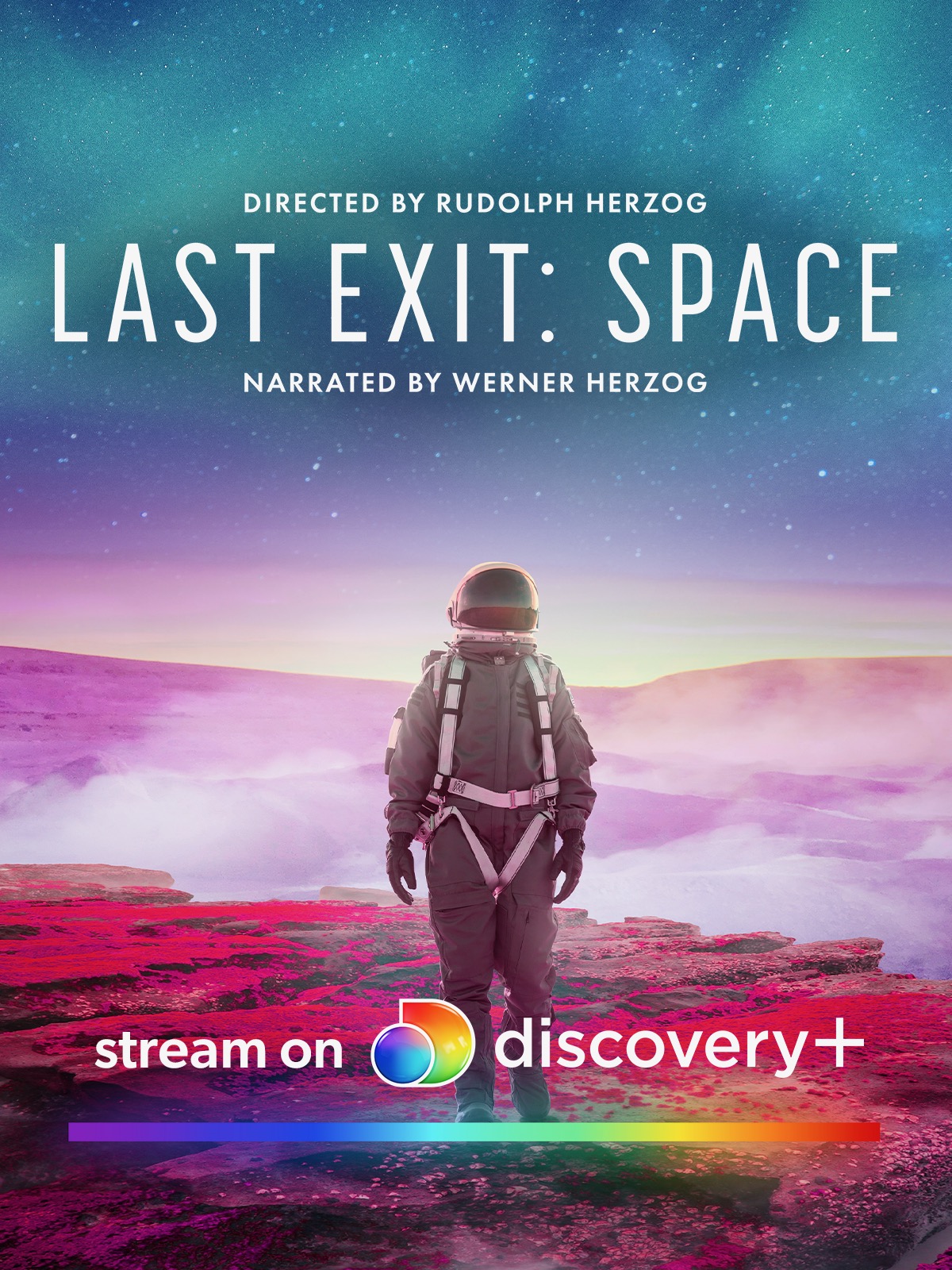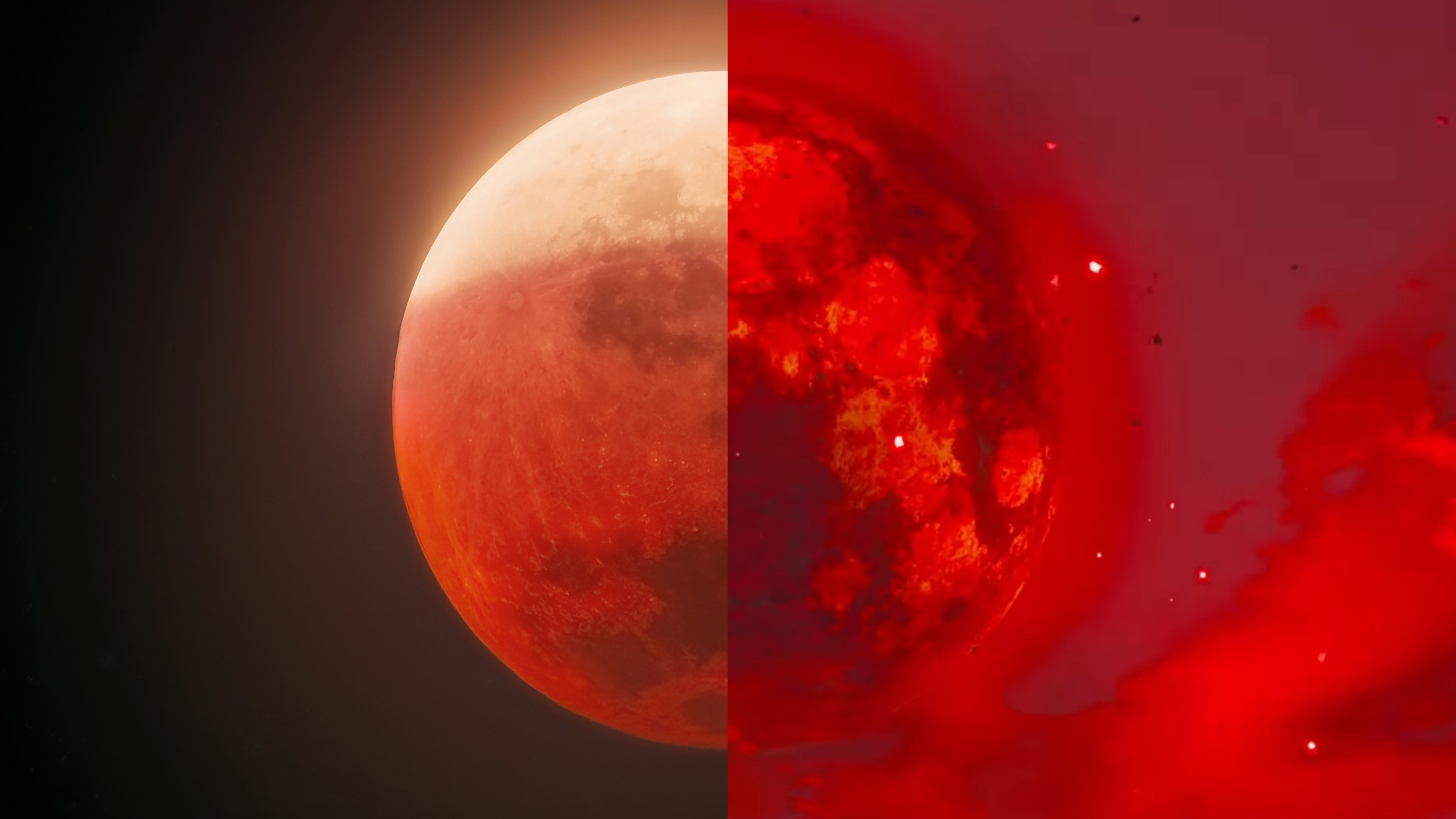Herzog doc 'Last Exit: Space' examines our future off Earth (exclusive trailer sneak peek)
Breaking space news, the latest updates on rocket launches, skywatching events and more!
You are now subscribed
Your newsletter sign-up was successful
Want to add more newsletters?
"From time immemorial, we humans have looked up at the night sky, marveling at billions of tiny specks. Settling on distant planets was once the domain of poets and dreamers, but with every leap in technology we come closer to realizing their dreams."
Those words, spoken by famed German director Werner Herzog, kick off the trailer for the new documentary "Last Exit: Space," which will stream exclusively on discovery+ starting March 10.
The 80-minute film — which was narrated and executive produced by Herzog and directed by his son Rudolph, also an award-winning filmmaker — examines humanity's quest to extend its footprint beyond Earth.
Related: Colonizing Mars may require humanity to tweak its DNA

That quest is complex and multilayered, driven in part by raw curiosity and in part by our growing awareness that any civilization confined to one world is inherently vulnerable to extinction (especially if that civilization treats its home planet with reckless disdain, as we have been doing lately here on Earth).
The two-minute trailer — which was released today (Feb. 25), with Space.com getting an exclusive early look — provides a glimpse at those many different layers and driving factors.
For example, there's a mention of NASA's Kepler space telescope, which pioneered exoplanet discovery on a large scale. Kepler data suggest that about 20% of sunlike stars in the Milky Way harbor a potentially habitable, roughly Earth-like planet — meaning there are many potential abodes for life in our galaxy and many potential worlds for humanity to colonize, should we develop the capability to do so.
Breaking space news, the latest updates on rocket launches, skywatching events and more!
The colonization push may end up being led by rich and powerful people in the private sector rather than government space agencies. Elon Musk has long stressed that he founded SpaceX back in 2002 primarily to help humanity set up shop on Mars, for instance. And Jeff Bezos has repeatedly said that he wants his company, Blue Origin, to help get millions of people living and working in space down the road.

It's a safe bet that "Last Exit: Space" — which was produced by Gunpowder & Sky, Spring Films and Taglicht Media — will take a good look at the activities of these companies and how they're shaping the broader space-settlement dream.
"Billionaire entrepreneurs are venturing out into space in a testosterone-fueled competition," Werner Herzog notes in the trailer. He says this over footage of a Blue Origin New Shepard suborbital vehicle taking off, Musk giving someone a high-five in a mission control room, and billionaire Richard Branson floating in suborbital space aboard Virgin Galactic's VSS Unity space plane.
Long story short: "Last Exit: Space" should cover a lot of very interesting ground, so check it out if you can when it comes out next month!
Mike Wall is the author of "Out There" (Grand Central Publishing, 2018; illustrated by Karl Tate), a book about the search for alien life. Follow him on Twitter @michaeldwall. Follow us on Twitter @Spacedotcom or on Facebook.

Michael Wall is a Senior Space Writer with Space.com and joined the team in 2010. He primarily covers exoplanets, spaceflight and military space, but has been known to dabble in the space art beat. His book about the search for alien life, "Out There," was published on Nov. 13, 2018. Before becoming a science writer, Michael worked as a herpetologist and wildlife biologist. He has a Ph.D. in evolutionary biology from the University of Sydney, Australia, a bachelor's degree from the University of Arizona, and a graduate certificate in science writing from the University of California, Santa Cruz. To find out what his latest project is, you can follow Michael on Twitter.
